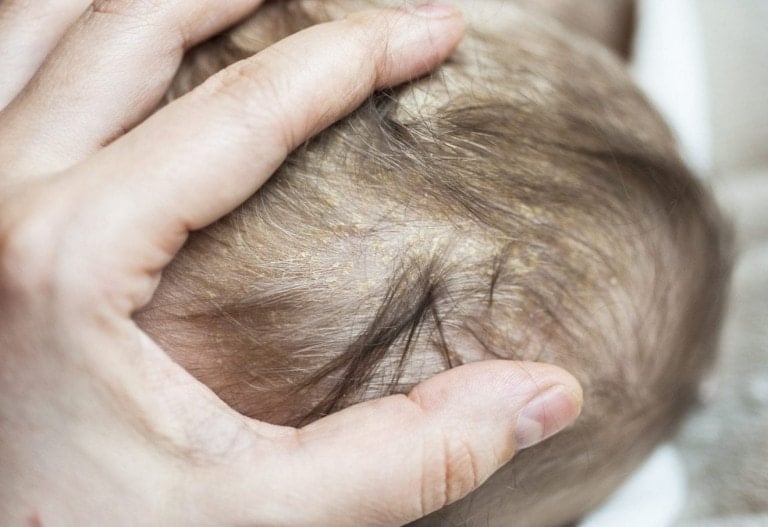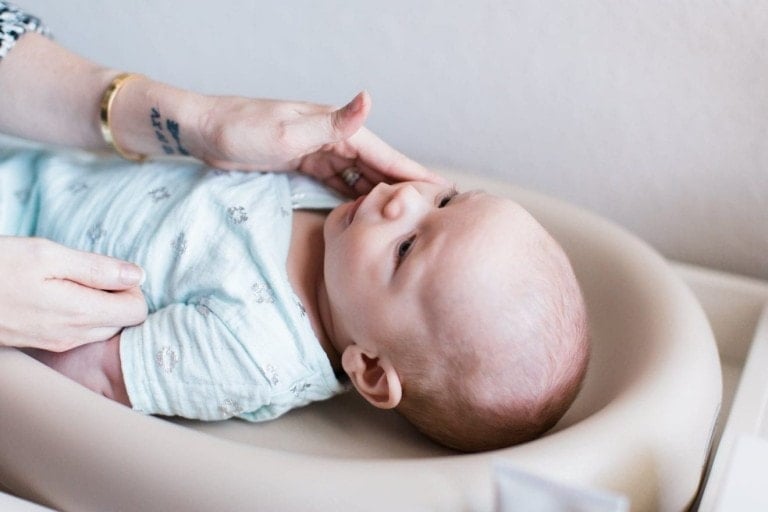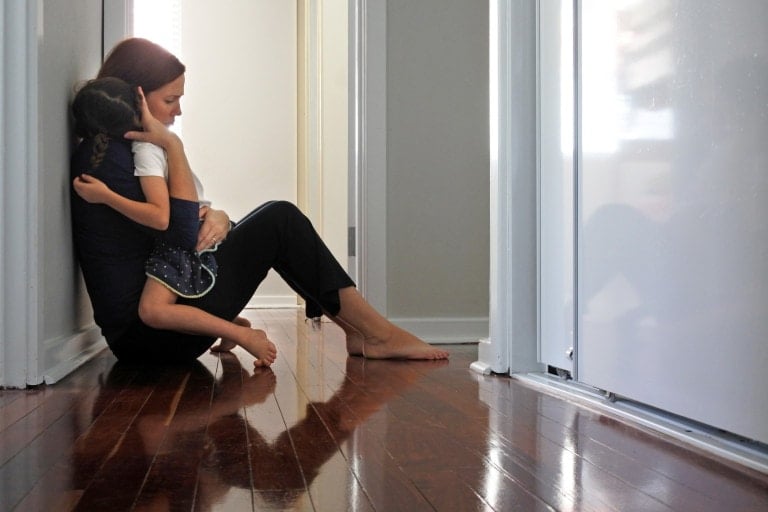Congratulations! You have a newborn baby at home, now what?! It seems like the only thing this new little human wants to do is eat or sleep. And most new parents find themselves wondering if that’s normal. Yes, it is normal! Eating and sleeping all day sounds easy to manage, but it’s not as simple as it sounds when you’re doing it for the first time. So many questions come up. Stuff like, “Do I have to wake the baby to feed?” “How much should I feed?” “How often?” The good news is that most newborns follow similar patterns in the beginning. Knowing these patterns and what to expect can be very helpful for a new parent since newborns can’t tell us in the traditional manner if they’re hungry or tired.
Fluctuations are Normal
Newborns have tiny tummies. And as they grow, their tummies also grow. So their needs are constantly changing. And just like you, they’re not necessarily going to eat the same amount at every meal. Sometimes you’re a little hungrier than other times, and this is true for your baby too! Everything you read about feeding babies is to be used as a guide. The best thing you can learn to do from the start is getting to know your own baby’s cues. If your baby seems hungry, feed him. If your baby seems to want a little more or less than what you read, that’s okay. It can be hard at first to figure out your baby’s cues, but you will undoubtedly catch on with time!
Weight Loss is Normal
The first thing to know is that almost all babies lose weight after birth. We usually don’t like to see them lose more than 10% of their birth weight, though. They should start gaining that weight back by around 3-5 days of life and be back up to their birth weight by two weeks of life.
Also, when we talk about feeding intervals for babies, we count from the beginning of one feed to the start of the next feed. This might seem like an inconsequential technicality if you’ve never fed a baby. But once you do it, you will understand how important this fact is to know. The process of feeding the baby, including burping, changing a diaper, and all the other messy things that can happen, can sometimes take almost up to an hour!
Feeding Your One-Week-Old Baby
Here’s a breakdown of feeding in the first few days.
Day 1 (0-24 hours)
Birth is an exciting and stressful event for both the parents and the baby. So just like you, your baby will likely be revved up for about an hour after the event and then want to pass out. So take advantage of skin-to-skin contact as soon as you safely can. If you or your baby are not medically stable enough for skin-to-skin yet, please do not worry; you will have plenty of snuggle time later. Safety first!
If nursing, try to get your baby to latch during this first hour when he’s most awake and alert. Don’t expect to see much right now. Even if nothing or just a few drops of/colostrum come out, that is okay and still very beneficial. Try for about 5-10 minutes on each breast, every 1-4 hours. Your goal should be about 6-8 feeds in 24 hours.
If bottle-feeding, your baby might take only around 5-15 mL every 1-4 hours.
Day 2 (24-48 hours)
If nursing, your goal should be 8-12 feeds in 24 hours. Do not let your baby go more than 3 hours between feeds, day or night. Try for at least 5-10 minutes on each breast. Take advantage of all the help you can get. Now is not the time to be shy! Nurses, postpartum doulas, physicians, lactation consultants can all be helpful. Getting the technique down can seem very challenging for some. Getting an extra set of hands from a partner can be very helpful.
If bottle-feeding, your baby might take around 10-30mL every 1-3 hrs. Do not let your baby go more than 3 hours between feeds, day or night.
Day 3 (48-72 hours)
If nursing, your goal should be 8-12 feeds in 24 hours. Try for 10-20 minutes on each breast. Breastfeeding is a supply and demand event. The more your baby feeds on your breast, the more hormones are released in your body to stimulate the production of milk. So the more your baby feeds, the more you will make.
If bottle-feeding, your baby might take around 15-60 mL every 1-3 hours.
For both, do not let your baby go more than 3 hours between feeds, day or night.
Day 4 to 2 Weeks
Your milk should come in sometime around days 3-5. But you’re still establishing your supply for the first few weeks, so continue to offer both breasts for each feed. If nursing, your goal should be 8-12 feeds in 24 hours. Continue about 10-20 minutes on each breast. More than that, your baby is likely just using you as a pacifier. You and your nipples need a break.
If bottle-feeding, your baby might take around 30-90 mL (1-3 ounces) every 1-3 hrs. A good estimate of how much your baby needs in 24 hours is to take your baby’s weight in pounds and multiply by 2.5. This is how many ounces your baby needs in 24 hours. So, for example, an 8-pound baby will take 8 x 2.5 = 20 ounces/day. If your baby feeds eight times per day, that’s about 2.5 ounces per feed.
For both nursing and bottle-feeding, do not let your baby go more than 3 hours between feeds, day or night. Once your baby is consistently gaining weight and back above birth weight, it’s usually okay to go more than three hours between feeds. Although I still recommend waking your baby during the day so that if he does a long stretch between feeds, it’s at night. Doesn’t 4 hours of uninterrupted sleep seem glorious right now?
How do I know if my baby is getting enough milk?
The best way to know if your baby is getting enough breastmilk or formula is by weight gain and wet and dirty diapers. For the first week, there’s a great rule for this too! Your baby should have the same number of wet (pee) diapers in 24 hours as the number of days she is old. So on day one, she should have one wet diaper. On day two, she should have two wet diapers. This holds until about day 5 or 6 of life. The number of dirty poopy diapers doesn’t matter as much as the consistency. The poop will go from thick meconium to more liquid stool as your baby eats and gains weight.
Here are a few nursing tips for the beginning:
- Don’t expect the baby to be latching and sucking the whole time while breastfeeding. Think about how you eat a sandwich. You take a bite, chew, swallow, and then you might put it down for a few minutes before picking it back up again. Your baby will have her own eating style, and you will learn what that is with time.
- Don’t put up with or suffer through a bad latch. You might feel some pain with the initial letdown, but if it is painful or pinching throughout the feed, gently break the baby’s latch with your clean finger, remove her from the breast, and try again. Suffering through a bad latch will destroy your nipples, and your baby will not effectively get the milk out.
Sleep and Your One-Week-Old Baby
Newborn babies sleep a lot. Up to around 16-18 hours of sleep in 24 hours. However, they don’t sleep for more than a few hours at a time. And they don’t have an established circadian rhythm yet. Their days and nights might be mixed up for at least the first 6-8 weeks.
For the first two weeks especially, babies are very sleepy, even more so during the day. One of the biggest struggles new parents often have is waking the baby to feed. But it is very important to do this until they are back up to their birth weight. Newborns often “wake up” around two weeks old.
Until then, make sure you have lights on and your baby unswaddled for feeding time. You don’t want it to be too warm and cozy if the baby keeps falling asleep while feeding.
Don’t Forget to Take Care of YOU!
So that’s my best summary of eating and sleeping during the first week for your little one.
Now, please, don’t forget to eat and sleep yourself, new parent! Both look very different for you now than they used to, but they are still so important.
Drink plenty of water, have a large jug around at all times! Straws are helpful. Eat lots of healthy snacks throughout the day. Think proteins, healthy fats, carbs, all of it! Even if it’s one-handed snacks and some crumbs fall on your baby, that’s okay.
Sleep also looks very different for you now. You’re not going to get what you need, but it’s important to make sleep a priority for you as well. Leave the dishes in the sink for now. Or ask someone else to do them. You need to eat and sleep just like your newborn baby!































